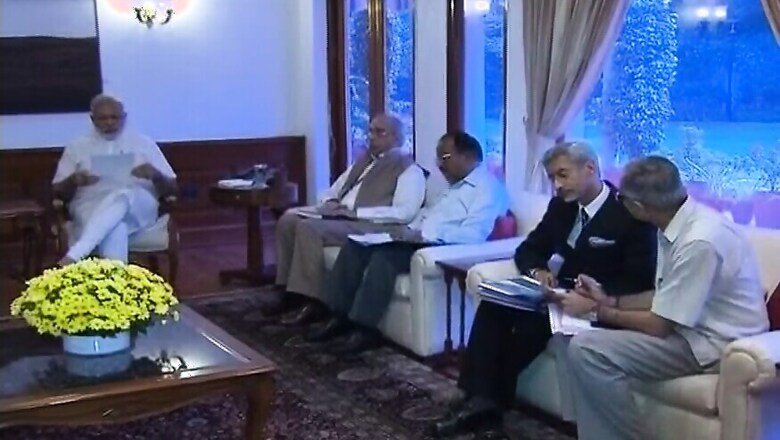
views
New Delhi: Following the September 18 cross-border terror attack on an India Army camp at Uri in Jammu and Kashmir, the government on Monday decided to review the 56-year-old Indus Waters Treaty with Pakistan.
At a meeting of senior officials chaired by Prime Minister Narendra Modi, it was decided that an inter-ministerial commission would be set up to go into various provisions of the bilateral treaty that was signed in Karachi on September 19,1960, out of Pakistan's fear that since the source of rivers of the Indus basin are in India, it could potentially create droughts and famines in Pakistan during times of war.
"Blood and water cannot flow together," official sources here quoted Modi as saying during the meeting.
The suspension of Jhelum navigation project is being reviewed and the government is working towards maximizing the use of western rivers for farmers in Jammu and Kashmir, sources said.
This includes increasing agricultural usage and hydroelectric capacity around the western rivers.
Sources said that government plans to increase the storage capacities on western rivers and will increase the hydroelectric power generation from western rivers to 18,600 Mega Watts.
Sources also said that government promised to work expeditiously on 3 dams on river Chenab.
However, the government will not participate in the meetings of the Indus Water Commission which have taken place every year since 1960 because such meetings cannot take place in an atmosphere of terror, sources said.
Government sources had earlier told CNN-NEWS 18 that the matter needs to be studied thoroughly before reviewing the treaty and taking it forward.
The water distribution treaty brokered by the World Bank was signed between India and Pakistan in 1960 after Islamabad's fear that since the source rivers of the Indus basin are in India, it could potentially create drought and famine in Pakistan during times of war.
According to the agreement, India has control over three eastern rivers -- Beas, Ravi and Sutlej -- all flowing from Punjab.
Pakistan, as per the treaty, controls the western rivers -- the Indus, Chenab and Jhelum that flow from Jammu and Kashmir.
Jammu and Kashmir has been demanding a review of the treaty as it robs the state of its rights to use the water of the rivers.
India has been making diplomatic efforts to isolate Pakistan on the issue of "exporting terror" in the wake of the September 18 Uri attack. The meeting on the Indus Waters Treaty is being seen as an indication that the government could be looking at more options to exert pressure on Pakistan.
(With inputs from IANS)
Also read: Indus Waters Treaty: India to Use Water as Weapon to Fight Pakistan


















Comments
0 comment